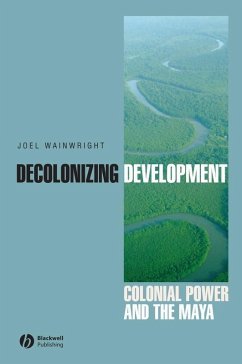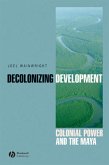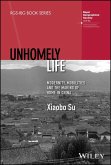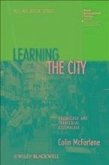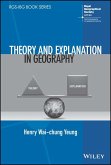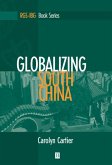Dieser Download kann aus rechtlichen Gründen nur mit Rechnungsadresse in A, B, BG, CY, CZ, D, DK, EW, E, FIN, F, GR, HR, H, IRL, I, LT, L, LR, M, NL, PL, P, R, S, SLO, SK ausgeliefert werden.
"Theoretically sophisticated ... .It has some important thingsto say that are relevant to both scholars and practitionersconcerned with development practices in the South today."(Geographical Journal, 2009)
"Culture studies sometimes receive a hasty, oftenincoherent introduction ... .Fortunately, this book is anexception. Wainwright provides a meticulous and actually readableexplanation of the culture studies 'manifesto.' One of theinteresting issues discussed was the Mayas' 'development' intosettled farming, as opposed to their original milpa(i.e., slash and bum) agriculture. Recommended."(CHOICE, December 2008)"Drawing on philosophy and political theory and a close studyof Belize, Wainwright provides a startlingly original reading ofdevelopment and its others. He shows how recognizing the nationalterritoriality of developmental discourses highlightsoft-overlooked continuities between colonialism and globalization,and forces us to reconsider the relation between metropolitancapitalism and its contestations."
-Eric Sheppard, Department of Geography, University ofMinnesota
"Joel Wainwright has produced a wide-ranging andpenetrating critique of development in Belize, which puts empiricalmeat on the bones of postcolonial, critical, and discursivetheories. Sophisticated and deeply researched, this case study willhave broad appeal. It speaks to the political and economic problemsof indigenous people, and to the way these troubles are intertwinedwith the academic obsession with studying thesegroups."
-Richard Wilk, Department of Anthropology, IndianaUniversity

